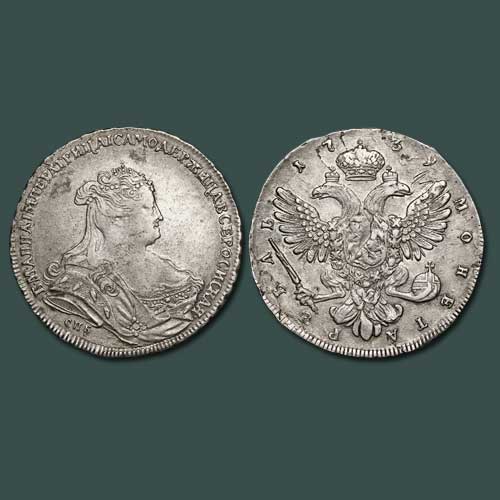Anna of Russia
2021-07-15 Thu
Anna Ioannovna was Empress regnant of Russia from 1730 to 1740. Much of her administration was defined or heavily influenced by actions set in motion by her uncle, Peter the Great, such as the lavish building projects in St. Petersburg, funding the Russian Academy of Science, and measures that generally favoured the nobility, such as the repeal of a primogeniture law in 1730.Anna, however, had little interest in government affairs and relied heavily on her lover, Ernst Johann Biron, and a small group of German advisers, including the head of Russia’s foreign affairs, Andrey Osterman, and the chief of the army, Burkhard Munnich, to manage the state.
In the West, Anna's reign was traditionally viewed as a continuation of the transition from the old Muscovy ways to the European court envisioned by Peter the Great. Her government, on the whole, was prudent, beneficial and even glorious; but it was undoubtedly severe and became at last universally unpopular. Within Russia Anna's reign is often referred to as a "dark era".
She was known to enjoy hunting animals from the palace windows and, on more than a few occasions, humiliated individuals with disabilities. Anna's war with Turkey, economic issues, and conspiracy revolving around her accession all bring to light an ominous glow of the empress' reign.
Here is a 1 Rouble coin issued during his reign. The obverse of the coin depicts her portrait. On the other hand, the reverse of a coin showing a double-headed eagle.
Image Source: Wikipedia.org
Latest News
-
Ghiyath Shah as Heir Apparent
2025-09-25 ThuGhiyath Shah was the ruler of the Malwa Sultanate, reigning from 1456 to 1500. From 1456 to 1469, he...
-
Malwa Sultan Mahmud Shah Silver Coins
2025-09-11 ThuMalwa Sultan Mahmud Shah minted silver coins in round and square flans. <br><br> For round coins,...
-
Malwa Sultan Mahmud Shah Billon coin
2025-08-26 TueMalwa Sultan Mahmud Shah's billon coins followed three weight standards: 100 rati, 96 rati, and 80 r...
-
Fascinating Archaeological Facts on Postage Stamps - 91
2025-08-23 SatRhinoceros is one of the oldest land mammal species existing in India. There are five species of rhi...
-
Fascinating Archaeological Facts on Postage Stamps - 90
2025-08-23 SatUthiramerur, a Village in Kanchipuram, Tamil Nadu, is notable for its Temple inscriptions that descr...

